Are you making these coin collecting mistakes?
Coin collecting can be an exciting, educational and rewarding hobby. Few other pastimes bring history to life in such a tangible way. And while numismatics was once the exclusive domain of the wealthy, today the “Hobby of Kings” is one pretty much anyone can enjoy.
Of course, as with any new endeavor, collecting coins and paper money can also have a bit of a learning curve. And unfortunately, some common mistakes can hurt your collection – and its value.
So let’s take a look at six of the most common coin collecting mistakes, and how you can avoid them…
Mistake #1: Handling Your Coins
Perhaps the most common mistake is handling your coins. Or, rather, mishandling your coins – as in handling them without taking proper precautions.
It might seem silly that simply touching your coins could harm them. But the truth is, the natural oils and perspiration on our fingers and palms can be corrosive over time. So to protect your coins’ surfaces and designs, you should only hold each coin by its edge, between your thumb and forefinger.
In addition to always holding coins by their edges, more experienced collectors also use soft cotton gloves when handling their coins – especially when handling high-quality Uncirculated or Proof pieces. We recommend these White Cotton-Knit Gloves, used by Littleton’s experts every day.
Not only are they comfortable, they’re super affordable, too!
Mistake #2: Handling Your Paper Money
Just as with coins, handling currency notes without first taking proper precautions can damage your paper money. Which is why many collectors also use soft cotton gloves when handling their paper money collections.
Additionally, notes should be placed in clear, inert currency holders or albums. This not only protects the surfaces of your notes from fingerprints and the natural oils found on fingers and palms that can be damaging over time. It also helps protect them from accidental folds, creases and tears.
Of course, you’ll still want to wear gloves when inserting or removing your notes. But while they are in the holders and albums, you can view and enjoy them with minimal risk.
Need a proper currency holder? You’ll find a variety of excellent paper money holders and albums under “Supplies” at LittletonCoin.com.
Mistake #3: Assuming age means greater value
People – even those who have been collecting for years – are often surprised to discover that a coin’s age doesn’t necessarily make it more valuable. True, it plays a role in determining value. But so do many other things – such as grade, intrinsic value, mintage, the number of surviving pieces and collector demand.
Ancient coins are a perfect example.
It would be easy to assume a coin struck over 1,600 years ago would cost more than one minted in the past decade. However, some ancient coins are surprisingly affordable, like this Bronze “Widow’s Mite” struck from 103-76 B.C.
In the end, it all comes down to supply and demand.
Some coin types, such as Buffalo nickels, Mercury dimes and Morgan dollars, are more popular than others of the same denomination. And the more collectors seeking the same coins, the more their prices will be affected.
Interested in building a quality collection of ancient coins? Check out Littleton’s Ancient Roman Coin Club. It’s convenient, affordable and 100% risk free!
Mistake #4: Cleaning your coins
One of the biggest coin collecting mistakes you can make is cleaning your coins. People often think cleaning old or dirty coins will increase their eye appeal, and thus their value. But the truth is just the opposite.
Improper coin cleaning can cause permanent loss of original mint finish and color – along with permanent loss of your coin’s value.
Sadly, more valuable pieces have been harmed by cleaning than anything else. Which is why high-quality Uncirculated and Proof coins should never be cleaned – at least, not by anyone other than an experienced numismatic expert.
And don’t think you can clean your coins and get away with it. Experienced collectors and dealers can easily spot an improperly cleaned coin.
Also, don’t attempt to “clean” or use an eraser on your paper money, or try to repair any tears with cellophane tape. Doing any of these will damage the note and reduce its collectible appeal – and value – more than the original defect.
Mistake #5: Buying Counterfeits
Counterfeit coins have been around almost as long as coins themselves. And unfortunately, many collectors have been duped into purchasing coins with altered dates or mint marks, or pieces that are complete fabrications.
However, there are few things you can do to ensure the coins you are buying are genuine.
One thing you can do is learn how to tell the difference between rare issues and novelty coins – you’ll find a good article on this topic here, in Littleton’s Heads & Tails blog. It’s also well worth your time to read this article on how to avoid falling victim to counterfeit coins.
For the ultimate security, you have two options. The first is to buy items that have been certified and sonically sealed by a reputable third-party grading service, such as NGC or PCGS. However, doing so isn’t always practical or even an option – especially for common issues and coins that aren’t particularly scarce or rare.
So your best choice is to always purchase from a reputable dealer in the industry – someone like Littleton Coin Company.
We’ve been serving collectors since 1945, and our team of expert buyers has over 150 years of combined experience. Plus, every purchase you make is backed by our 45-day Money Back Guarantee of Satisfaction.
Mistake #6: Improper Storage
The last of the coin collecting mistakes we’ll cover here is one of the most common: storing coins and paper money improperly.
High humidity, air pollution, salt air and temperature extremes are all factors that can sometimes affect the surfaces of coins. So it’s best to store coins in protective holders or albums, and to keep them in an area of relatively uniform temperature.
For paper money collections, it’s best to store your notes flat in protective holders or albums. Also, you’ll want to keep them in an area of relatively uniform temperature and humidity, and out of direct sunlight.
As your collection becomes more valuable, you may choose to store some or all of your coins in a safe-deposit box. If you choose to keep your collection in your home, we recommend you check with your insurance company to ensure it is covered for its full replacement cost. If you aren’t sure what your collection is worth, Littleton’s new Personal Coin Appraisal Kit is a quick, easy way to estimate its value.
Littleton has a full line of coin and paper money collecting supplies, including archival-quality albums, holders and even corrosion protection kits. Just call our friendly and expert Customer Service team at 1-800-645-3122 or go to: LittletonCoin.com/shop/coin-supplies
Do you have any tips for collectors you’d like to share?
Now that we’ve covered the top six coin collecting mistakes – and how to avoid them – do you have any other stories, tips or words of wisdom you’d like to share with your fellow collectors?
We’d love to hear them. Let us know in the comments below!


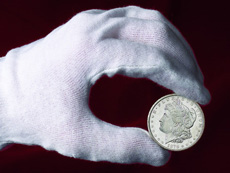 When handling your coins, wear high-quality cotton gloves like these from LittletonCoin.com
When handling your coins, wear high-quality cotton gloves like these from LittletonCoin.com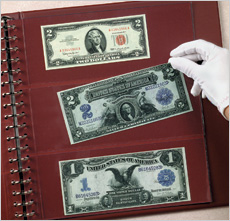 Protect your paper money collection by storing your notes in currency note holders or albums
Protect your paper money collection by storing your notes in currency note holders or albums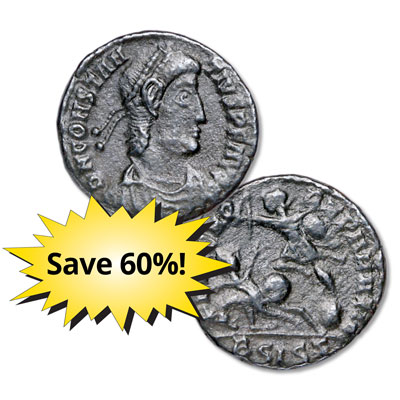 Collecting Ancient coins is easy, affordable and Risk Free with Littleton’s Ancient Roman Coin Club
Collecting Ancient coins is easy, affordable and Risk Free with Littleton’s Ancient Roman Coin Club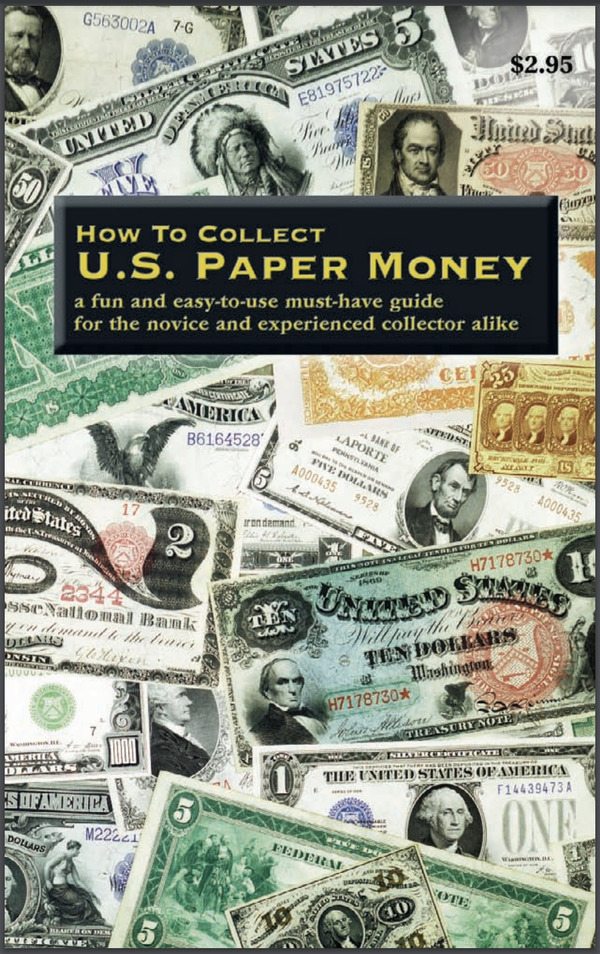 Do you collect paper money? You’ll find plenty of FREE resources in Littleton’s Learn Center!
Do you collect paper money? You’ll find plenty of FREE resources in Littleton’s Learn Center!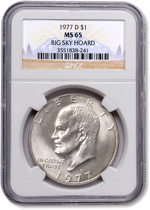 Certified coins have been graded and encapsulated in a special holder
Certified coins have been graded and encapsulated in a special holder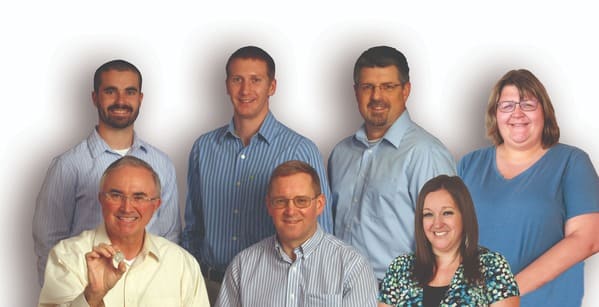 With over 150 years of combined experience, Littleton’s team of expert Coin Buyers ensures each coin you buy is genuine
With over 150 years of combined experience, Littleton’s team of expert Coin Buyers ensures each coin you buy is genuine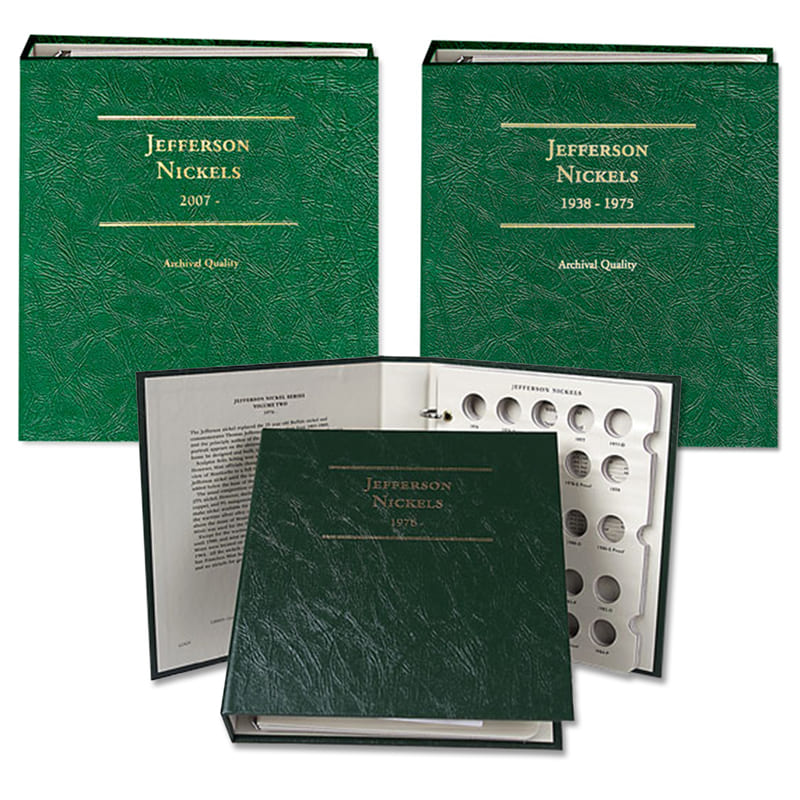 Littleton’s archival-quality albums and Corrosion Protection Kit can help protect your collection.
Littleton’s archival-quality albums and Corrosion Protection Kit can help protect your collection.

New and am experminting with different methods of exihbits. Whats easiest, what looks best, and of course saving the coin. Enjoyed the article though.
Thank you
Thanks for stopping by Joe! If you need any help with your collecting, let us know. We’ll be happy to help. Have a good day! -Rick
How can I sale old Indian currency
Hello, we only do business in the United States and we only purchase US coins & notes. Sorry we cannot assist you. Thank you for inquiring. Good day.
I have many coins stored in the Littleton binders and they have become discolored. Also the coins want to slip out of their spots and become loose. I don’t feel that this is a proper way to store valuable coins. I should have left them in the plastic envelops that they came in with the proper identification
Hi Janice, the coins slipping out of their spots, sounds like you may have a defective album. Please contact our Customer Service Department, so we can get this taken care of. The telephone number is 1-645-3122 and we are available Monday through Friday from 7:30AM until 9:00PM ET.
The discoloration you are referring to is called toning. Toning is natural process found on Uncirculated coins. Every coin begins to tone as soon as it leaves the press, because all coins contain reactive metals. Over a period of time, coins chemically react with substances in their environment. Most often, that substance is sulfur from the materials the coins are stored in, like mint bags, paper rolls and coin envelopes. For silver coins, the result is a surface film of varying intensity that gives part or all of the coin a range of solid or multi-colored iridescent hues on the surface. You can read more about toning here: https://blog.littletoncoin.com/beautifully-toned-coins/
We highly recommend using corrosion protection kits with our albums. The slipcases in the kits reduce airflow to your coins, and the corrosion protection pages neutralize harmful gases that could damage your collection. Here is a link to our website. https://www.littletoncoin.com/shop/ProductDisplay?urlRequestType=Base&productId=61778&catalogId=29555&categoryId=&errorViewName=ProductDisplayErrorView&urlLangId=-1&langId=-1&top_category=&parent_category_rn=&storeId=10001
The cellophane/lollipop type wrappers we use to package the majority of our coins, are intended to provide protection during shipping and allow for easy viewing of the coins, upon receipt. Removing the coins from the wrappers will not change the condition of the coin, if handled properly. Please contact us with any other questions or concerns. Have a great day!
I have a problem with coins stored in coin folders (not Littleton). They were inserted in these folders in the 1960’s. The coins have blackened terribly over time. I’m guessing they were stored in an non-acid free paper folder. Removing the coins from the old folders is the first step I want to take. But I would still have the black residue on the coins. And some of the coins are pretty much unreadable. In that case, what good is the coin if you can’t read it. Is there a safe way to clear some of the residue off the coin?
Hi Dale, Sorry that happened to your collection. Unfortunately, cleaning coins in most cases will destroy their numismatic value. For that reason we don’t ever recommend customers clean their coins. If they’re unreadable already, you are probably better off replacing them.